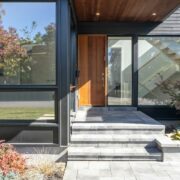Stay Cool This Summer: What You Need to Know About AC Maintenance

Trying to beat the heat? Running your AC unit certainly helps. Even better is knowing some practical tips about AC maintenance. The following tips will not only save you money on electric bills but will also help extend the life of your AC unit.
Change Your Filters
Dirty filters cause AC units to work harder. The result? Increased bills and an AC unit with lower efficiency. Ideally, you will want to change filters every 1-3 months, depending on how often you are using AC.
Filters vary depending on how efficient they are. How do you check? Refer to the MERV, or minimum efficiency reporting value. For residential AC units, MERV ranges from 1-12. The higher the number, the higher the efficiency, or filtration. If you’re unsure which filter you need, it’s worth contacting a professional HVAC service. A professional can check which exact filter you need, based on your AC unit, and install it properly.

Perform Annual Maintenance
Schedule a yearly AC checkup with your HVAC technician. This checkup can help ensure that all components of your AC are working as they should be. For example, the checkup should involve:
- Verification of operating temperatures and conditions
- Cleaning and replacing filters
- Inspecting controls
- Inspecting and cleaning coils
- Checking refrigerant
- Inspection and cleaning of fans and blowers
This is not an exhaustive list but should give you an idea of what your HVAC professional is looking for when they perform annual AC maintenance. The added benefit of a yearly checkup is that it can catch any potential issues before they arise, which can save you money on costlier repairs or replacements.
Encourage Airflow
AC systems work best when there is unimpeded airflow. Why? When a door is shut during the cooling cycle, the cooled air that is pumped into the room is then trapped inside. This can cause an imbalance of pressure, with increased pressure in the room. The cooled air will be forced out of any small openings, such under the door or through cracks in window caulking. The result? Wasted energy, which will be reflected on your next energy bill.
Even when your AC is not running, a closed off room can still affect airflow. How? The room is shut off from the rest of the airflow within the home, leading to a negative pressure situation. This causes outside air to infiltrate inside, meaning that warmer, unconditioned air is now in your home. Negative pressure situations worsen air quality, with outside contaminants, such as pollen or smog, now inside your home.
To encourage proper air circulation and cooling, avoid shutting too many interior doors. Also ensure your home is as airtight as possible, with caulking and weather strips.
Use A Timer
There’s no need to keep your AC on full blast throughout the whole day. If you have a central unit, have a programmable thermostat installed so you can set the temperature and the time when the AC is running. For example, when you are away at work, you can set the thermostat at a higher temperature or have the AC unit off.
You can consider a smart thermostat, which connects to your phone. This way, you can remotely control and adjust the environment in your home, from wherever you are.
Perform A Simple Inspection
Once a month, or whenever you’re outside performing yard work, look at the AC unit. Keep an eye out for any debris (sticks, leaves, dirt, etc.) that inhibits airflow. Also note whether there is any water or leakage around the unit. If you notice anything out of the ordinary, contact your local HVAC technician.
AC Maintenance Goes A Long Way
Stay cool and comfortable this summer! By following the above tips, you can on utility bills and prolong the life of your AC unit. You will avoid costly repairs and replacements, and will enjoy a cool, comfortable atmosphere.
This article was written by Leah Campbell at Third Loft Marketing.


